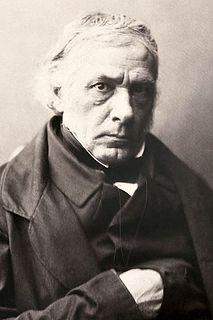Top 16 Quotes & Sayings by Victor Cousin
Explore popular quotes and sayings by a French philosopher Victor Cousin.
Last updated on April 21, 2025.
When we read with attention the poetical and philosophical monuments of the East--above all, those of India, which are beginning to spread in Europe--we discover there many a truth, and truths so profound, and which make such a contrast with the meanness of the results at which European genius has sometimes stopped, that we are constrained to bend the knee before the philosophy of the East, and to see in this cradle of the human race the native land of the highest philosophy.
Art neither belongs to religion, nor to ethics; but, like these, it brings us nearer to the Infinite, one of the forms of which it manifests to us. God is the source of all beauty, as of all truth, of all religion, of all morality. The most exalted object, therefore, of art is to reveal in its own manner the sentiment of the Infinite.
All men have an equal right to the free development of their faculties ; they have an equal right to the impartial protection of that sovereign justice which is called the State ; but it is not true, it is against all tho laws of reason and equity, it is against the eternal nature of things, that the indolent man and the laborious man, the spendthrift and the economist, the imprudent and the wise, should obtain and enjoy an equal amount of goods.
Yes, gentlemen, give me the map of any country, its configuration, its climate, its waters, its winds, and the whole of its physical geography; give me its natural productions, its flora, its zoology, &c., and I pledge myself to tell you, a priori, what will be the quality of man in history:-not accidentally, but necessarily; not at any particular epoch, but in all; in short, -what idea he is called to represent.

























